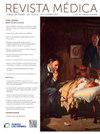Entrenamiento de habilidades clínicas en Kinesiología: implementación de una estrategia mediada por tecnología en un contexto de retorno al aprendizaje presencial
IF 0.4
Q4 MEDICINE, GENERAL & INTERNAL
引用次数: 0
Abstract
Introduction
During the COVID-19 pandemic, remote teaching provided valuable insights into technology use, applicable on return to in-person education. Hybrid education emerges as a solution to limitations in faculty resources and practical experiences for acquiring clinical competencies in Health Sciences. This study describes a clinical skills training strategy using a feedback oriented platform, following the return to in-person education in Physiotherapy.
Methods
The methodology involves autonomous training sessions with asynchronous feedback, where students are assessed and provided feedback by an instructor through video demonstrations of skills. The extent of student training, performance, learning strategy appreciation, skill improvement and skill transfer to in-person exams were analyzed.
Results
In total, forty-two undergraduate Physical Therapy clinical skills were trained. Results emphasize individualized feedback delivery to all students, significant performance improvement, and positive strategy appreciation.
Conclusions
Remote training facilitated deliberate practice of clinical skills in students, offering opportunities for autonomous, peer-guided training prior to faculty supervision.
运动学临床技能培训:在回归面授学习的背景下实施以技术为中介的策略。
导言在 COVID-19 大流行期间,远程教学为技术的使用提供了宝贵的见解,并适用于恢复面授教育。混合式教育的出现解决了健康科学专业在获取临床能力方面的师资资源和实践经验的限制。本研究描述了在物理治疗学专业恢复面授教育后,使用反馈导向平台的临床技能培训策略。方法包括带有异步反馈的自主培训课程,教师通过视频演示技能对学生进行评估并提供反馈。对学生的训练程度、表现、学习策略的领悟、技能的提高以及技能向现场考试的转移进行了分析。结果总共训练了 42 名本科生的物理治疗临床技能。结论远程培训促进了学生对临床技能的有意练习,在教师指导之前提供了自主、同伴指导培训的机会。
本文章由计算机程序翻译,如有差异,请以英文原文为准。
求助全文
约1分钟内获得全文
求助全文
来源期刊

Revista Medica Clinica Las Condes
MEDICINE, GENERAL & INTERNAL-
CiteScore
0.80
自引率
0.00%
发文量
65
审稿时长
81 days
 求助内容:
求助内容: 应助结果提醒方式:
应助结果提醒方式:


